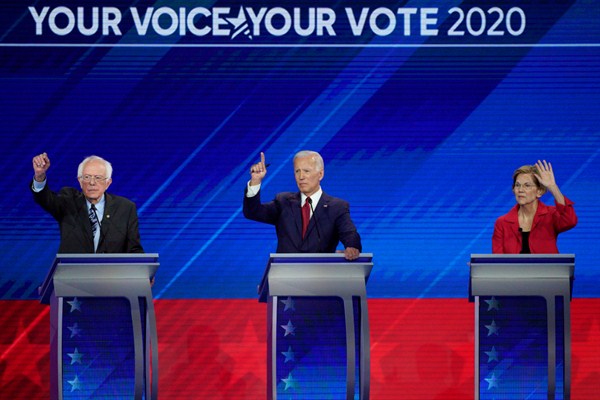Trade has rarely been a major issue in American presidential elections, but that could change in 2020. The obvious way for Democratic candidates to differentiate themselves from a protectionist, “trade wars are good, and easy to win” President Donald Trump would be to embrace free trade more. But Democrats traditionally have been more critical of free trade than Republicans, and the leftward tilt among party activists and some leading candidates makes that even more likely next year. So far, only former Maryland Congressman John Delaney has embraced the free trade alternative, and he is doing so poorly in polls that he failed to qualify for last week’s debate.
So how are the Democratic presidential candidates positioning themselves vis-à-vis Trump on trade? And on the left, how wide are the differences? On China, according to a Politico survey of Democratic candidates’ positions, where available, 10 out of 11 of them agree that Chinese economic policies are problematic, but they criticize Trump’s approach to China as costly and inept. Sen. Elizabeth Warren of Massachusetts and Sen. Bernie Sanders of Vermont have been somewhat more sympathetic to the use of tariffs in some situations, but they still criticize Trump’s implementation of them. Former Vice President Joe Biden has focused on making the United States more competitive and has downplayed the degree to which China and its unfair trade practices are a threat.
Some of the candidates highlight as a key difference Trump’s unilateral approach, saying they would partner with allies to confront China over its trade and industrial policies. Beto O’Rourke recently released a trade plan that began with a pledge to lift the extra tariffs on China “on day one” to mitigate the costs for American farmers and consumers. He says he would then join with allies to file a complaint at the World Trade Organization and seek to negotiate new rules to better address Chinese trade practices.

